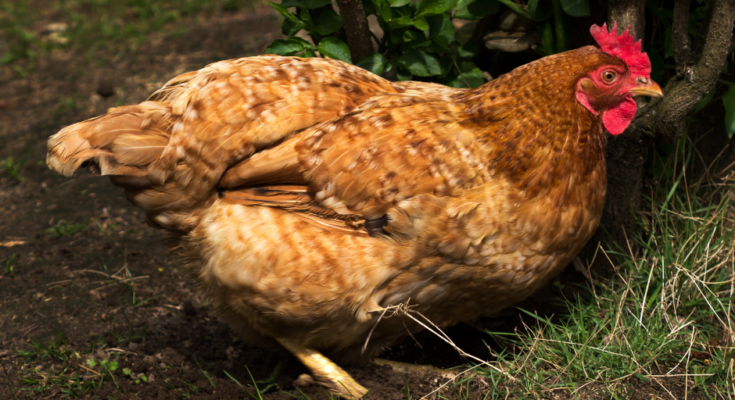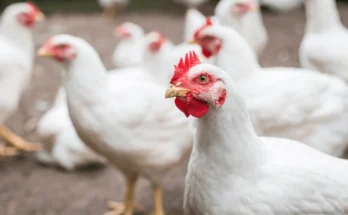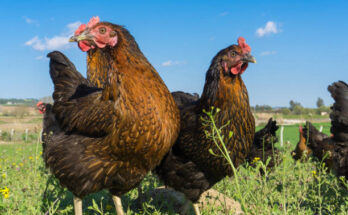Maximizing Gut Health for Poultry: Strategies for Optimal Well-being
Gut health is a critical aspect of poultry production, impacting overall well-being and performance. By implementing targeted strategies to improve gut health, poultry farmers can enhance feed efficiency, disease resistance, and ultimately, the profitability of their operations. In this blog post, we will explore key factors influencing poultry gut health and discuss practical approaches for improving gut health in poultry production.
The Importance of Gut Health in Poultry
Understanding the Role of Gut Health
Maintaining good gut health in poultry is crucial for overall well-being and productivity. The avian gastrointestinal tract plays a vital role in digestion, absorption of nutrients, and immune function. A healthy gut supports the bird’s ability to thrive, grow, and resist diseases. It also contributes to the efficient conversion of feed into energy and muscle mass. Understanding and prioritizing gut health are essential for sustainable and profitable poultry farming.
Impacts of Poor Gut Health in Poultry
Poor gut health in poultry can lead to a range of negative outcomes. Digestive disorders, nutrient malabsorption, decreased feed efficiency, and increased susceptibility to infections are common consequences. Additionally, impaired gut health can result in suboptimal growth rates, lowered egg production, and higher mortality rates. Such issues can significantly impact the overall performance and profitability of poultry operations, making it imperative to address and mitigate potential gut health challenges effectively. You can find many common chicken illnesses and symptoms here which will impact your flocks productivity and well being.
Factors Affecting Poultry Gut Health
Diet and Nutrition
Poultry gut health is significantly influenced by diet and nutrition. Providing a balanced diet with essential nutrients, such as protein, vitamins, and minerals, is crucial for maintaining a healthy gut microbiome in poultry. Including prebiotics and probiotics in the feed can also promote beneficial bacteria in the gut, aiding in digestion and overall gut health. Additionally, the quality and composition of feed play a vital role in supporting the integrity of the intestinal lining, ultimately impacting the poultry’s ability to absorb nutrients efficiently. Having the gut producing the required enzymes efficiently is key to improving gut health in poultry.
Water Quality
Water quality is another crucial factor that affects poultry gut health. Contaminated or poor-quality water can lead to various gastrointestinal issues in poultry, compromising their overall health and performance. It is essential to ensure that the water provided to poultry is clean, free from harmful pathogens, and of optimal pH levels. Proper hydration, facilitated by high-quality water, is essential for maintaining a healthy gut environment and supporting vital physiological functions in poultry.
Environmental Stressors
Environmental stressors, such as temperature fluctuations, overcrowding, and exposure to pathogens, can have a significant impact on poultry gut health. These stressors can lead to an imbalance in the gut microbiota, making the poultry more susceptible to infections and digestive disorders. Creating a comfortable and hygienic environment for poultry, along with effective biosecurity measures, is essential for minimizing stress and preserving the overall gut health of the birds. Implementing stress-reducing strategies and maintaining proper ventilation and sanitation can contribute to a healthier and more resilient gut microbiome in poultry.
Strategies for Improving Gut Health In Poultry

Probiotics and Prebiotics
Incorporating probiotics and prebiotics into poultry diets can significantly enhance gut health. Probiotics are beneficial bacteria that can help maintain a balanced gut microbiota, while prebiotics provide the necessary fiber to support their growth. Including these supplements in poultry feed can aid in improving digestion, enhancing nutrient absorption, and bolstering the overall resilience of the gut.
Optimal Feeding Practices
Implementing optimal feeding practices is crucial for promoting gut health in poultry. This includes providing a well-balanced diet tailored to the specific nutritional requirements of the birds. Ensuring the availability of clean water, using high-quality feed ingredients, and avoiding abrupt dietary changes are essential factors for maintaining a healthy gut environment in poultry.
Managing Stress and Environment
Effective stress management and maintaining a favorable environment are pivotal for safeguarding poultry gut health. Minimizing environmental stressors, such as overcrowding and excessive noise, can help reduce the likelihood of gut disturbances. Additionally, ensuring proper ventilation, adequate space, and appropriate lighting can contribute to a conducive environment that supports optimal gut function in poultry. We have a complete guide here on keeping hens healthy which every poultry owner should be aware of.
Hygiene and Disease Prevention
Maintaining meticulous hygiene practices and implementing robust disease prevention measures are integral for preserving poultry gut health. Regular cleaning and disinfection of living quarters, equipment, and feeding areas can mitigate the risk of pathogen exposure. Furthermore, vaccination programs and rigorous biosecurity protocols play a critical role in preventing infectious diseases that can compromise gut integrity in poultry.
The Role of Feed Additives
Antibiotics
Antibiotics have been historically used in poultry production to prevent and treat diseases, thus promoting growth and improving feed efficiency. However, overuse of antibiotics has led to concerns about antimicrobial resistance. As a result, regulations have been implemented to restrict the use of antibiotics in poultry feed.
Enzymes and Organic Acids
Enzymes and organic acids are used as feed additives to enhance nutrient utilization and promote gut health in poultry. Enzymes such as phytase and carbohydrases aid in breaking down complex nutrients, improving digestion and absorption. Organic acids, like formic acid and butyric acid, create an acidic environment in the gut, inhibiting the growth of harmful bacteria and promoting the growth of beneficial bacteria.
Herbal Supplements
Herbal supplements, derived from various plant sources, have gained popularity as natural alternatives to antibiotics in promoting gut health in poultry. These supplements often contain bioactive compounds with antimicrobial and anti-inflammatory properties, supporting the overall well-being of the birds.
Incorporating these feed additives into poultry nutrition not only supports gut health but also contributes to the overall performance and well-being of the birds. Herbal supplements are always favoured over any man-made supplements utilising chemicals. Remember also that what is in your chicken is also in your eggs, so always try to utilise herbal options when improving gut health in poultry animals and in general.
Conclusion
Improving gut health in poultry is crucial for ensuring overall well-being and productivity. By implementing a comprehensive approach that includes proper nutrition, management practices, and the use of natural supplements, poultry farmers can effectively support the development and maintenance of a healthy gut environment in their flocks. Prioritizing gut health not only enhances the birds’ immune function and nutrient absorption but also contributes to sustainable poultry production. By focusing on proactive gut health management, poultry producers can optimize the performance and welfare of their flocks while meeting the growing demand for high-quality poultry products.



